This game is a cross between a sci-fi text quest and a chat simulator. The story of a wrecked astronaut that will take place before your eyes …
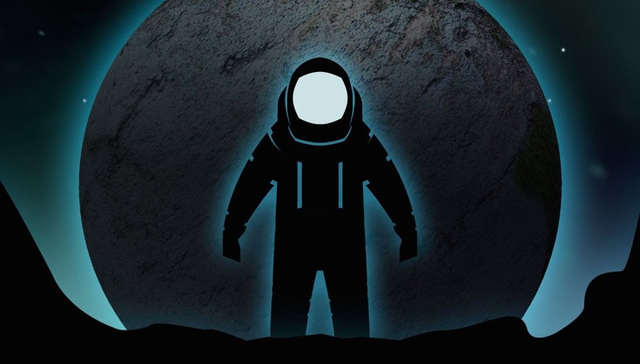
Foreword
The Lifeline writers, like the Out There developers, clearly love classic fiction. But if Out There I associated with Soviet science fiction, then Lifeline – rather with American. In particular, it is somewhat reminiscent of Andre Norton's novel 'Sargassa in Space', but there is only one hero in this case.
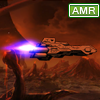 |
Out There: Ω Edition |
I don’t even know how to describe the genre of the game. This game is said to be a revival of the now forgotten text quests that were popular on the PC many years ago. I personally did not find games of that era, so there is nothing to compare with. And in any case, Lifeline has one important feature, which in itself sets it apart from other quests. The fact is that all events here take place at the speed of real time. No rewinding of time is provided, and hour pauses between actions are quite common.
[iframe url = '// www.youtube.com/embed/cmSFJrLQlqQ' width = '640 ″ height =' 360 ″ scrolling = 'no' frameborder = '0 ″ marginheight =' 0 ']
It is probably worth noting that the author of the plot is one of the main developers of The Wolf Among Us. To me this, however, does not mean much, but it seems like the game is considered very famous. And also far from typical.
Usually in games we control a fictitious character, play someone else's role. The player as such does not exist in the game world, there is only his alter ego, which becomes the real hero of the story. That's not the case with Lifeline. You are exactly you and no one else. All the adventures fell to the lot of a completely different person, for whom you are just a voice on the other side of the communicator screen. And it should be noted that he did not ask for these very adventures, and he did not ask for your company at all, but evil fate decreed otherwise.
Plot
His name is Taylor, and he is the most typical student, even though he lives a couple of centuries later than you and me. A couple of days ago, he was doing an internship on the Varya spacecraft and, apparently, was completely satisfied with life. Formally, he was even listed as an astronaut, although all he was entrusted with doing on board was studying the behavior of laboratory rats in zero gravity. The trainee was not allowed to do more serious matters.
He was unlucky only once, but in a big way – a few hours before the start of the game, the ship had an accident and fell on the surface of one of Tau Tseti's moons. What happened, Taylor did not have time to understand, but it is very likely that he is the only one who managed to escape.
The good news is that the air on the moon is breathable. The bad news is that he has practically no chance of getting out of this scrape alive. Moreover, there was no food or water in the escape pod, and now it itself will not work even for scrap metal.
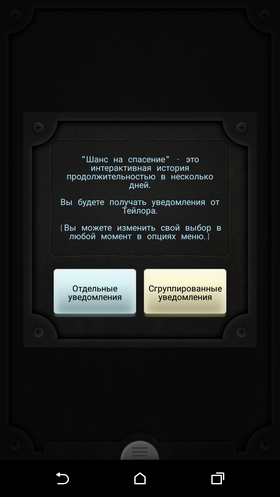

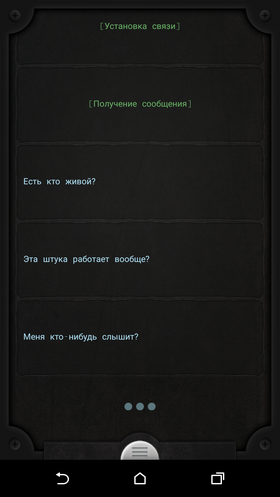
Taylor now only has a spacesuit with a built-in compass, flashlight and transmitter. There is little sense from the latter: it looks like you are the only person in the range of the signal. It is not known how you can help the boy, who is many light years away, but your own strength and your advice are all that he can count on in difficult times. And he will clearly have a lot of such minutes ahead.
Game process
The gameplay is as simple as possible. From time to time, Taylor will contact you, tell you what is happening, and sometimes ask for advice. There are always two options for an answer, so you don't have to think about the choice for a long time. Despite the pretentiously cheerful tone and attempts to put a good face on a bad game, our student was completely unprepared for the disaster that had occurred. What to do after a shipwreck and how to survive on an alien planet, he is very vague, and physical fitness leaves much to be desired. And the conditions around are such that it will be very difficult for Taylor to even survive the very first night – the temperature on the moon is rapidly falling, and he has every chance of turning into ice long before dawn.
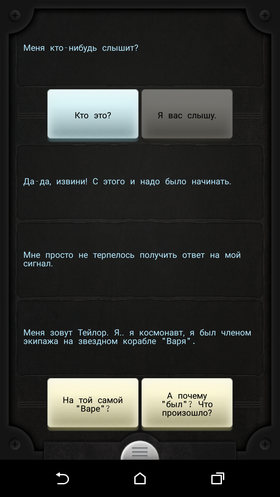

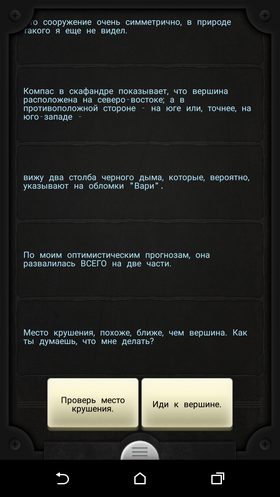
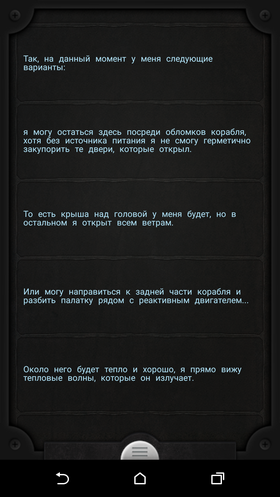

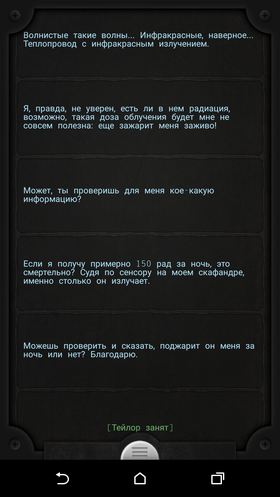
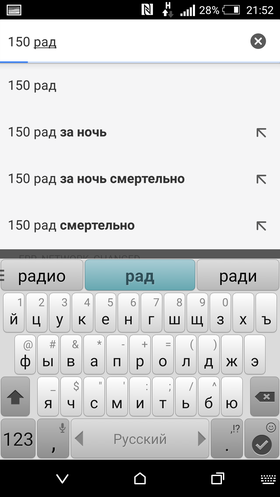


As I said, time in the game is tied to real time. Moving from point A to point B can easily take a couple of hours, and even such simple actions as trying to break down a door or inspecting a crash site take time. In a sense, Lifeline is not so much a fantastic quest as a kind of chat emulator. The developers tried to do everything to create the feeling of a conversation with a real person who, in addition to talking with you, has a bunch of important things to do. In his spare time, he doesn't mind saying a word (and even has an unpleasant habit of spamming with short messages of several words, which always annoyed me extremely), but then he becomes silent for a long time. Accordingly, you are not required to constantly sit in an embrace with the phone – you have read the incoming messages, poked a button with a suitable answer, and you can continue doing business. Taylor mostly writes on the case, but sometimes just wants to talk. In the first case, he will wait for your reaction, in the second, he will continue to go about his business, even if you cannot answer.
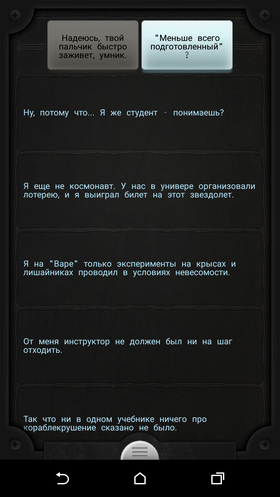

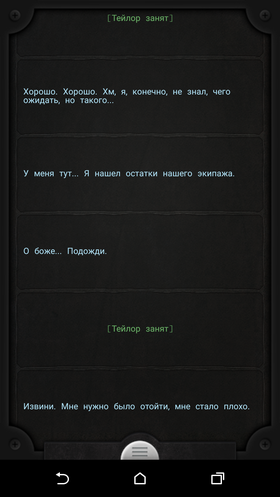
Messages from Taylor are displayed in the address bar of the smartphone, like messages from real chats. The only pity is that the LED does not blink. If desired, you can answer them directly from the lock screen or the 'curtain' of the notification bar. In the game settings, you can choose whether to display each message as a separate notification, or group everything into one.
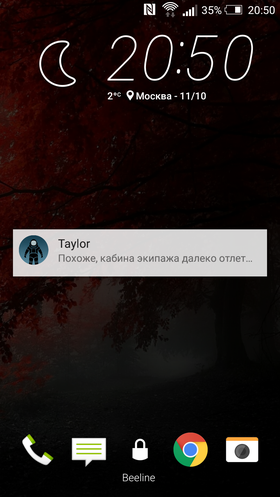

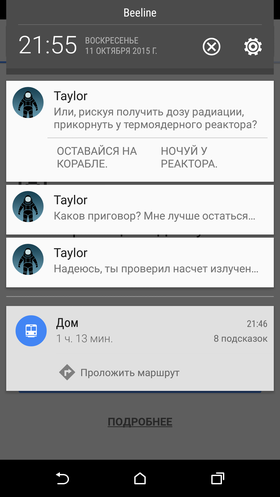
The translation into Russian is done pretty well, sometimes it even seems that the game was originally written in this language. Especially when our English student starts trying to translate feet into meters, scolding the illogical metric system, or trying to joke, every now and then inserting slang words.
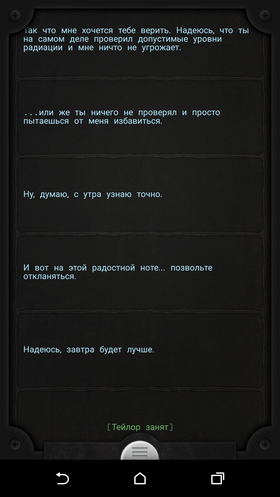

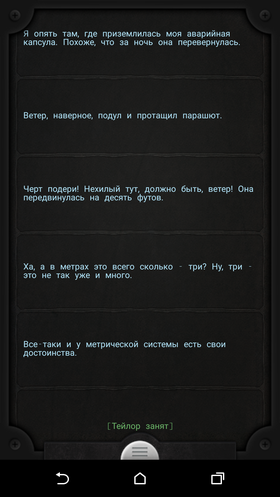
conclusions
This is a very strange game, which can equally well be called a chat emulator or a smart bot for a messenger, as well as an interesting fantastic quest. Someone will sincerely like such a leisurely gameplay, while others will only cause bewilderment. In any case, Lifeline does not pull the role of a traditional time killer – it is rather a substitute for twitter or news feeds, which many are used to watching in a random free minute. It is a pity that this lesson will be enough for a short while, and it was done very simply. The idea itself is great, but it could have been better implemented.
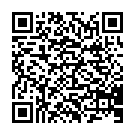

Post Scriptum
An interesting detail – the game was clearly made with an eye on wearable electronics like the same 'smart' watches. Apple She supports Watch now, and something tells me that this is just the beginning. In any case, its format is suitable for wearable devices as well as possible, because outwardly these are the most ordinary pop-up notifications from chat, mail or SMS that are on any self-respecting 'smart' watch.
Until recently, the very idea of playing on a watch seemed completely wild to me. Now I would not be so categorical. Of course, a completely different format is needed here, but Lifeline has shown that nothing is impossible in this. But this is still the simplest and most obvious solution, and who knows what else you can think of here?
And it seems, it is obvious that no serious gaming platform will come out of wearable electronics … but remember, during the first iPhone, almost all analysts declared in unison that games are harder than a snake for iOS not live. That for mobile games there are special consoles with joysticks and everything else, and playing on the smartphone screen is complete nonsense. Too difficult for a housewife and too primitive for an experienced gamer. But in reality everything turned out strictly the opposite.
In any case, if I were in the business of developing smartwatches, I would make sure there are a couple of exclusive games for them like this one. For technique, the game is the main engine of progress, and it is foolish to neglect such a factor.

